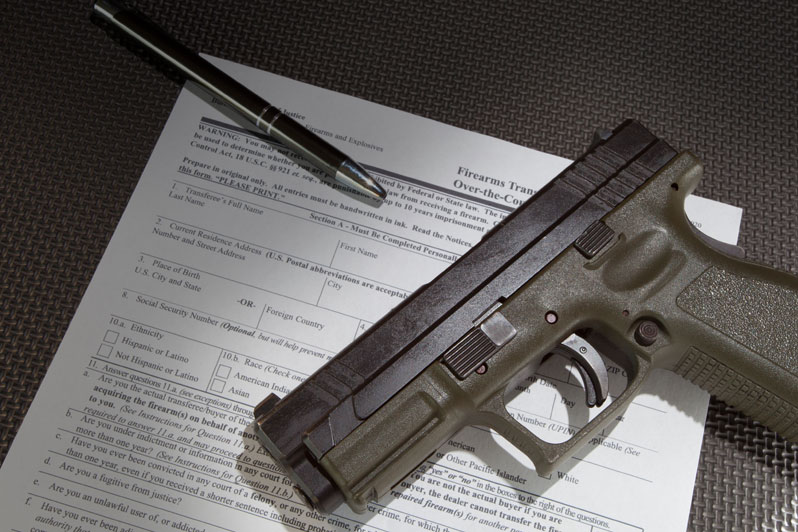

The intersection of firearms rights and felony convictions creates a complex legal landscape that significantly impacts thousands of Louisiana residents. For those with past felony convictions, understanding exactly when and if they can legally possess firearms becomes critically important, as violations can lead to severe new criminal charges—even when the original conviction occurred decades ago. Navigating these restrictions requires precise knowledge of both state and federal regulations that govern firearm possession.
We at the John D. & Eric G. Johnson Law Firm have guided numerous clients through the complicated legal framework surrounding firearms rights after felony convictions. As experienced criminal defense attorneys serving Minden and North Louisiana, we’ve helped individuals understand their specific legal situation and worked to restore rights when possible. The serious consequences of weapons charges demand accurate legal counsel from attorneys familiar with both Louisiana’s specific restoration provisions and federal prohibitions.
Louisiana’s Firearms Restrictions for Felons
Louisiana law specifically addresses firearm possession by those with felony convictions through statute RS 14:95.1. Understanding the specific elements of this law is essential for anyone with a prior conviction.
Under Louisiana law, a person convicted of certain enumerated felonies may not possess a firearm for a period of 10 years from the completion of their sentence, including probation and parole. This restriction applies to specific categories of felonies, including:
- Violent crimes (such as murder, manslaughter, armed robbery, etc.)
- Sex offenses
- Drug offenses punishable by imprisonment for more than five years
- Domestic violence offenses
- Residential burglary
The 10-year “cleansing period” begins only after you’ve fully completed your sentence, including any probation, parole, or suspended sentence. During this period, possessing a firearm can result in a new felony charge carrying penalties of 5 to 20 years imprisonment with hard labor, without benefit of probation, parole, or suspension of sentence.
A critical misconception involves believing that rights automatically restore after the 10-year period. While Louisiana law does potentially allow for restoration after this period, federal law may still prohibit firearm possession regardless of state restoration provisions.
Federal Firearms Prohibitions
Federal firearms laws operate independently from Louisiana state law and often impose more restrictive and permanent prohibitions on firearm possession following felony convictions.
Understanding Federal Prohibitions
Under federal law (18 U.S.C. § 922(g)), it’s generally unlawful for anyone convicted of a crime punishable by imprisonment exceeding one year to possess any firearm or ammunition. Unlike Louisiana’s more limited list of qualifying felonies, federal law applies this prohibition to virtually all felony convictions, with few exceptions.
Federal penalties for illegal firearm possession are severe, including up to 10 years in federal prison, substantial fines, and the possibility of enhanced sentences if the firearm is used in connection with other offenses. These federal charges can be brought even if Louisiana state law would otherwise permit possession.
The relationship between state and federal law creates a particularly treacherous situation for those with past convictions, as compliance with state requirements doesn’t ensure protection from federal prosecution. This disconnect between state and federal law often creates confusion and potential legal jeopardy.
Pathways to Restoration of Firearms Rights
For those with past felony convictions, several potential avenues exist for restoring firearms rights, though each carries specific requirements and limitations.
Governor’s Pardon
A full governor’s pardon that specifically restores firearms rights represents the most comprehensive restoration method. This approach may restore rights under both state and federal law if properly structured. However, pardons remain relatively rare and typically require:
- Completion of sentence and significant time without further legal issues
- Evidence of rehabilitation and positive contributions to society
- Letters of support from community members
- Detailed application addressing the original offense and subsequent life changes
Despite these stringent requirements, a properly structured pardon petition with strong supporting evidence offers the most complete path to firearms rights restoration for those who qualify.
Expungements and Their Limitations
While expungements may clean a person’s public record, they typically don’t restore firearms rights by themselves under federal law. Louisiana law specifically notes that expungement doesn’t automatically restore the right to possess firearms when the underlying conviction involved a crime of violence.
Federal Relief
Federal law theoretically provides for relief from firearms disabilities through application to the Bureau of Alcohol, Tobacco, Firearms and Explosives (ATF). However, Congress has not funded this program for decades, effectively eliminating this pathway for most individuals with felony convictions.
Each restoration option involves complex legal requirements, and the consequences of misunderstanding these pathways can be severe. Consulting with an attorney experienced in firearms rights restoration provides essential guidance through this process.
Contact Our Experienced Criminal Defense Team
Navigating firearms rights after a felony conviction requires precise legal knowledge and careful analysis of your specific situation. At the John D. & Eric G. Johnson Law Firm, we bring decades of criminal defense experience to help clarify your rights and explore potential restoration options. Our thorough understanding of both Louisiana and federal firearms laws allows us to provide accurate counsel in this high-stakes legal area.
Attorney Eric Johnson has successfully defended clients facing weapons charges throughout North Louisiana and has helped numerous individuals navigate the complex process of rights restoration. His experience in state and federal courts provides valuable insight for anyone facing these complicated legal questions. For a consultation about your specific situation, call us at (318) 377-1555 or reach us through our contact form.
